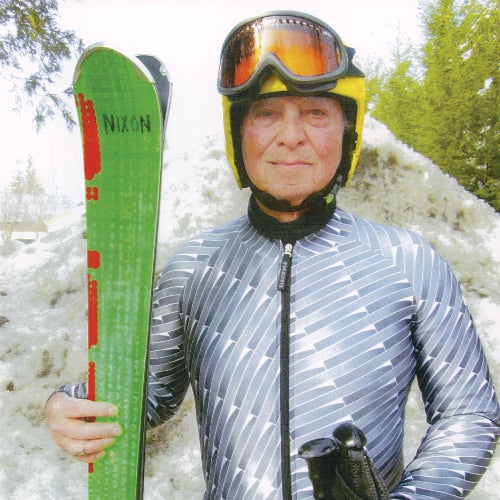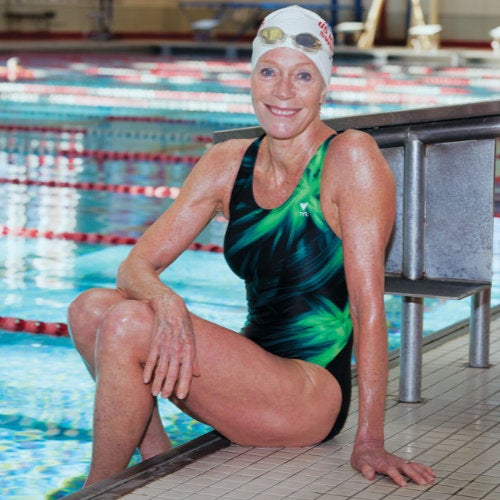Today, about 10,000 baby boomers are celebrating their 65th birthday. Tomorrow, 10,000 more will turn 65. This trend will continue until 2029, when approximately 18 percent of the U.S. population will be 65 or older, says Phil Clark, professor of gerontology and director of the Rhode Island Geriatric Education Center at URI, citing statistics from the Pew Research Center.
Pew research also tells us that boomers don’t define age the way previous generations did—most believe old age starts around the age of 72. And, most say they feel nine years younger than their actual age. Maybe this redefinition—along with plenty of drive, discipline, and talent—is part of what spurs extraordinary alumni athletes Bill Nixon ’58 and Diann Uustal ’68.
5 Good Reasons to Get Up and Get Moving
Deb Riebe, professor of kinesiology and associate dean of URI’s College of Health Sciences, says everyone can enhance their health and well-being through physical activity. Riebe and Phil Clark, professor of gerontology, offer these really good reasons to get and stay active:
-
Improve Your Mood
Exercising can help with many of the things adult populations struggle with. Besides the oft-cited physical benefits of exercise, such as combatting obesity, exercise has been shown to decrease anxiety and improve mood. And, if you do something with a social component, such as taking an exercise class, or walking with friends, it can help combat loneliness.
-
Recover Faster
If you exercise, you may be able to recover from injuries and other health setbacks faster than those who don’t exercise.
-
Experience Positive Side Effects
Exercise is good all-around medicine. Unlike pharmaceuticals, which usually positively affect one body system, but often have negative consequences or side effects on other body systems, exercise has positive effects across the board—to your physical health, mental health, and cognitive functioning.
-
Slow The Aging Process
Aging is inevitable, but research has shown that exercise can slow the trajectory of physical decline.
-
It’s Never Too Late
Aging is a lifelong process. No matter your age, get active now. Exercising early in life sets you up for more successful aging, but it’s never too late. Start now.
Riebe and Clark suggest talking with your doctor before beginning an exercise routine, especially if you haven’t been physically active.


